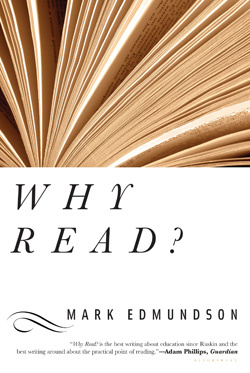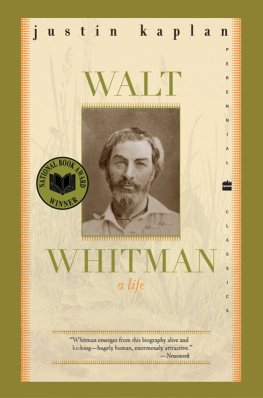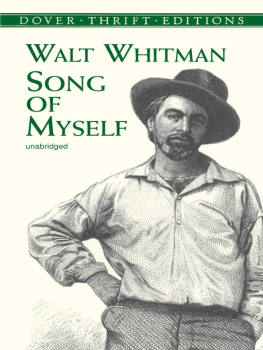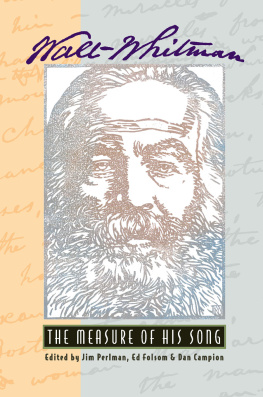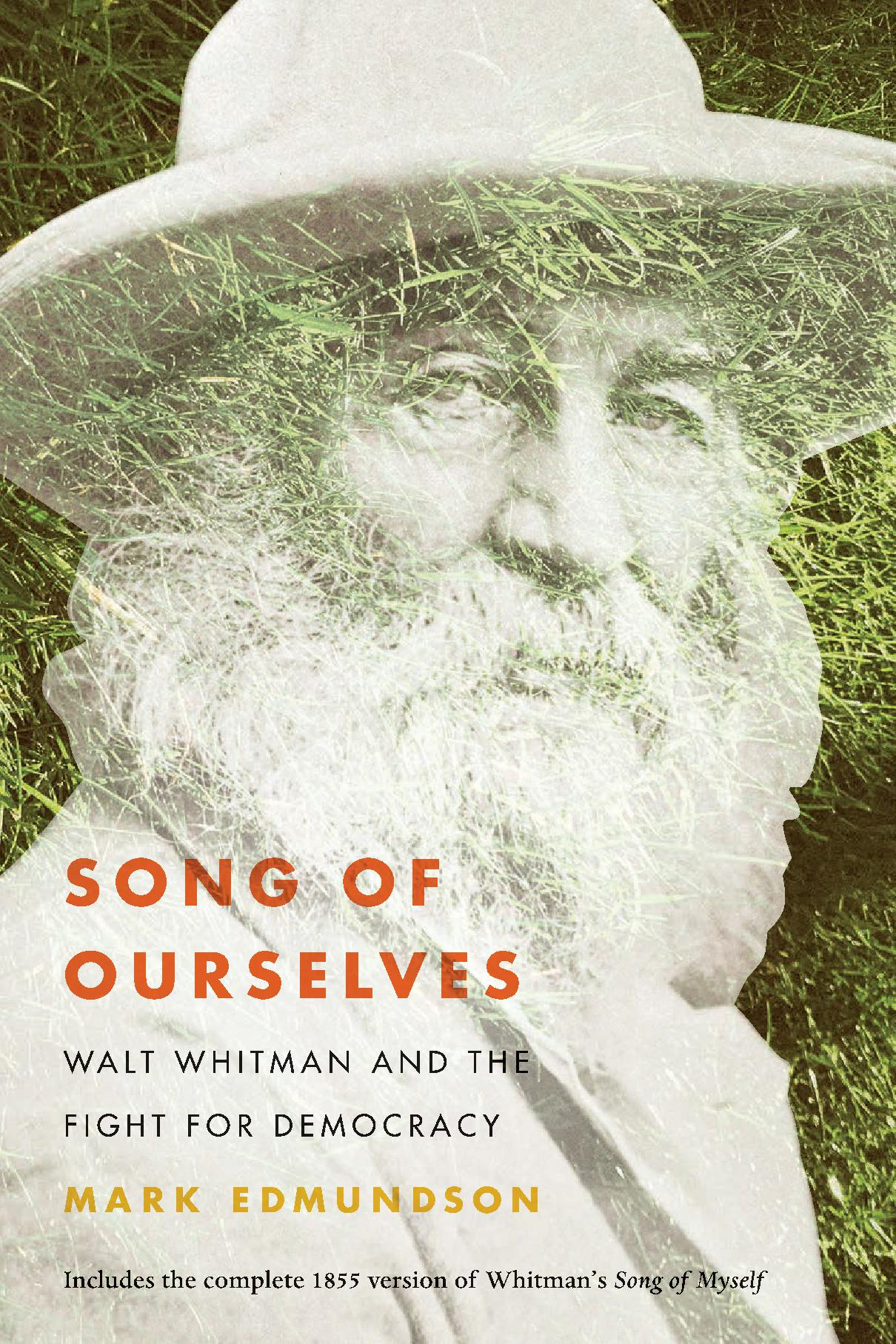This is a book about Americas great poet Walt Whitman and his greatest poem, Song of Myself. The poem is reprinted in , and I invite the reader to refer to it as the book unfolds, or to begin by taking it in from end to end. This book, like the poem it interprets, is not intended primarily for experts and scholars, but for general readers who go to literature for pleasure and instruction.
Song of Myself is a joy to read. It is magnificently eloquent and inventive, full of brilliant phrasings and rich, complex music. It affirms the pleasures of the body and wonder of the natural world. Reading it makes you feel grateful to be alive. It would have been possible to write a book about the vital aesthetic achievement of Song as long or longer than this one. But this book chiefly concerns another aspect of the poem.
Song of Myself is a poem about democracy. In it, Whitman offers a vision of an ideal democratic individual and democratic society. With Song of Myself, he attempts to inaugurate a new age, the age of authentic democracy. Democratic institutions were in place when Walt wrote, yes. But he believed that people still did not understand the true spirit of democracy and what it feels like at its best to live as democratic men and women every day. Democracy calls for a new literature, and in Song of Myself Walt tries to inaugurate it. Whitman wants democracy to be not only a form of practical governance but a form of spiritual life, the best form. Where conventional religion was, there total commitment to democracy must be, offering challenges and joys akin to those once found in transcendent faith. If democracy is only legislative and legalistic, it will fail. Democracy, Walt felt, must also be spiritual. In the transition to spiritual democracy, the poet is crucial. The priest departs, says Walt with a pinch of irony (but not much more), and the divine literatus comes (Whitman, LoA, p. 932).
Some readers may feel that I idealize Walt and his Song in these pages. I happily admit, Walt was not always a great poet and sometimes not even a good one. And though he was a kindly and gentle man in his day-to-day life and something close to a saint in his hospital work during the Civil War, he was far from perfect. In this book, I emphasize Walt at his copious best. I want to affirm the achievements in Walts work and in his life that can still help us to thrive as individuals and as a society. What of Whitman lives? What of Walt can we use? Unlike many literary critics, I am far less interested in who Walt was and how we ought to judge him than what Walt can do for us here and now.
Whitman is a radical writer: he was radical when he wrote, and his work is radical today. He goes further in his egalitarianism than any writer I know. Much that we currently assume about human relations is at variance with Walts vision. He really does mean it: we are all equal; we are all one. My objective here is to lay out Whitmans vision in Song and to give it the most affirmative rendering that I can. I suspect that there are few readers who will embrace the vision out and out. Im not sure that I can myself. But we need to encounter it as it is: unmitigated, subtle, and strong.
I wrote this book because I believe Whitman still has a great deal to teach us about democratic life. I dont think weve assimilated the best of his vision of what democracy means and how we might unfold it in the future. I wrote it because democracy is perpetually in danger of succumbing to the two antidemocratic forces Walt most feared. The first is hatred between Americans, the kind of hatred that Whitman saw take us to war in 1861. The second danger to democracy lies in the hunger for kings. The literature and culture that preceded Whitman and surrounded him when he wrote Leaves of Grass was largely what he called feudal. It revolved around the elect, the special, the few. Walt understood human fascination with kings and aristocrats, and he sometimes tried to debunk it. But mostly he asked his readers to shift their interest away from feudalism to the beauties of democracy and the challenge of sustaining and expanding it. Democracy was in serious danger in the 1850s, when Walt began conceiving his great poem. Does one need to add that it is in danger today?
Whitman knew that democracy is ever vulnerable. It might not last. The best hope for human happiness that humankind has yet produced could disappear from the earth. Walt would not let that happen without a fight.
The text of Song of Myself concludes with a famous pair of lines: Missing me one place search another, / I stop some where waiting for you (ll. 13351336). But the poem doesnt really end there. Nor does it culminate in the hundreds of other poems Whitman went on to write. The true completion to Song occurred in the world of experience. Whitman finishes his vision not on that final page of Song or any other page. He completes it in the Civil War hospitals. There he went to give comfort to the sick and wounded, White and Black, Southern and Northern. In the hospitals, Whitman learns and teaches the ultimate lessons of democracy. There he becomes the sort of democratic individual that his great poem prophesies. In his life in the hospitals, Whitman is where he told us he would be. Hes up ahead, waiting for us.
Before 1855, the year Walt Whitman published the first edition of


